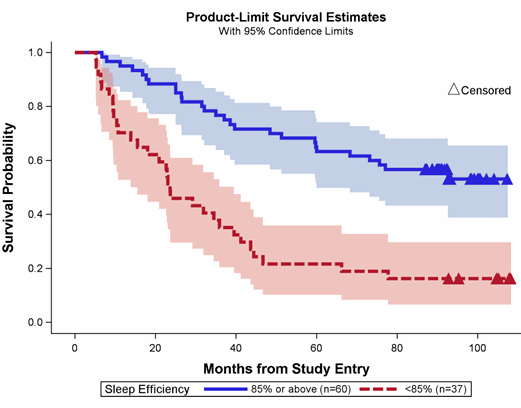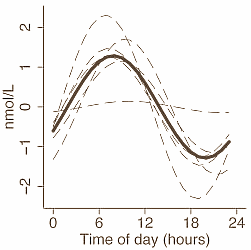|
Definition: "An ergogenic aid is any substance or phenomenon that enhances performance "
|
|
||||||||
13.09.2017 |
|
|
Screen addiction making you sleep badly? Lutein helps
If you clock up a lot of screen time you may be sleeping badly. Digital screens produce high-energy blue light that disrupts your sleep cycle. Researchers at the University of Georgia in the US have discovered that lutein supplementation helps against this. That's not so surprising: lutein, a substance found in kale and leafy vegetables, absorbs high-energy light in the retina.
Study
Half of the participants took a placebo for six months and the other half tooka supplement containing 25 mg lutein, zeaxanthin and mesozeaxanthin (ratio: 83-10-7). The researchers used a product made by Omniactive Health Technologies [omniactives.com], who sponsored this study too.
The same amount of carotenoids can be found in 130 g cooked kale or 160 g spinach.
Results
"Supplementation with macular carotenoids have the effect of increasing macular carotenoid optical density, but also have wide-ranging systemic antioxidant and anti-inflammatory effects", the researchers wrote, thinking aloud.
"It could be, therefore, that systemic reduction of oxidation and inflammation ultimately manifests as better overall sleep quality. Additionally, a recent report suggests that supplementation with macular carotenoids for six months significantly reduced psychological stress and serum cortisol. [Nutr Neurosci. 2017 Feb 15:1-11.] Because psychological stress is often noted as a significant factor for insomnia, its reduction may account for the beneficial effect on sleep quality seen in the present study."
Conclusion
"Although the effects presented in this study appear to be reasonably uniform among subjects and generally commensurate with retinal response to macular carotenoids supplementation, they motivate the need for additional, larger studies in research in populations other than college-aged individuals."
"For example, children younger than 10 years old are known to have exceptionally clear crystalline lenses, and may have not had sufficient time/dietary habits to accumulate appreciable macular pigment. The clarity of the lens (which normally yellows slightly with age) means that more high-energy blue light will reach the retina, where a lack of macular pigment may compromise the ability of the retina to deal with the oxidative stress."
"Given the recent dramatic rise in the use of handheld devices/computers by this age group, it would be interesting to determine if a nutritional intervention could help with potential visual, physical, or perhaps behavioral outcomes."
Source:
More:
|
|
|||||||||||||||||






